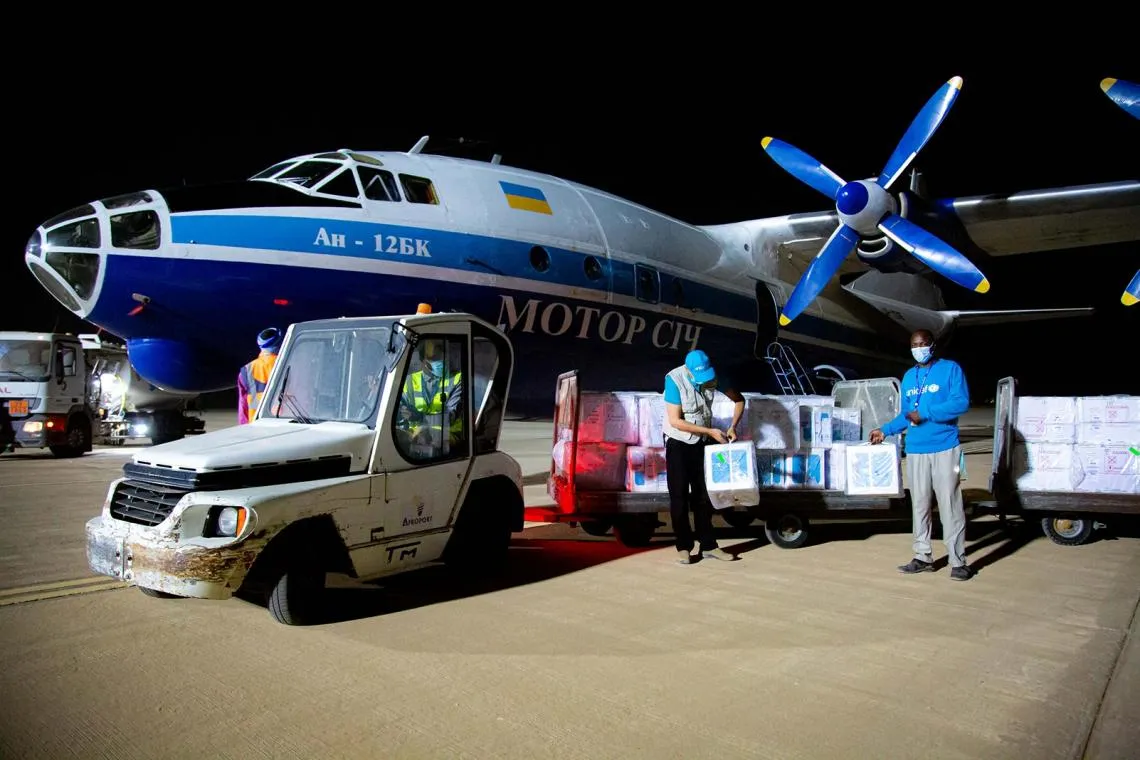While global vaccines offer a glimmer of hope for an end to the pandemic, many African countries lack the infrastructure to store and transport certain vaccine candidates. This has stymied the roll-out of a comprehensive vaccination programme across the continent as countries struggle to solve the challenge of storage and distribution.
What’s the problem?
The African Union secured 270m shots of the coronavirus vaccine in January from Pfizer, Johnson & Johnson and AstraZeneca that will be distributed according to countries’ population size.
With most countries on the continent only equipped with a cold-storage chain that can maintain standard refrigeration temperatures of -8C, the AU announcement sparked fresh fears that vaccines such as Pfizers’ might go to waste.
Pfizer and BioNTech’s candidate is a rarer mRNA vaccine that must be transported at -70 degrees Celsius (-94 degrees Fahrenheit) and stored in an ultra-cold fridge for a maximum of five days, leading to fears that it’s unsuitable for the continent.
The J&J and AstraZeneca vaccines on the other hand do not have the cold storage requirements of the other vaccines.
What’s the solution?
Experts say there are ways around the continent’s lack of cold-chain distribution.
Pfizer’s thermal shippers can be used as temporary storage units if they are refilled with dry ice every five days for up to 30 days of storage, says Professor Greg Hussey, a member of South Africa’s Ministerial Advisory Committee on vaccines and the Director of Vaccines for Africa.
“It’s not an impossible task, it’s just laborious,” he told African Business.
Solar rays of hope
Another solution developed for West and Central Africa is solar powered fridges. The United Nations children’s agency Unicef launched an initiative in 2018 with African governments and Gavi, the Vaccine Alliance, to buy and install solar-powered vaccine fridges across the region.
With its disparate regions, dense jungle and remote villages, West and Central Africa offer the most complex and challenging environments to navigate vaccine storage and distribution, says Jean-Cedric Meeus, Unicef’s chief of supply for the region.

Solar panels that will power a vaccine fridge being installed on the roof of a health centre in Sierra Leone.
“We mapped where the necessary equipment was missing and then set about installing almost 20,000 solar-powered fridges, all the way from the coast to the forests in the interior. It is a huge asset to have countries equipped like this and we will continue to roll them out,” he says.
The fridges can store vaccines at 2-8°C, and will help bridge the gap of both unreliable electricity and lack of ultra-cold storage facilities.
Unicef is also working with global airlines and freight providers to procure and deliver vaccines from manufacturers that have agreements with Covax, an equitable vaccine distribution initiative, which 40 African countries have signed up to.
Discussions are underway between Unicef, the Pan American Health Organization (PAHO), the International Air Transport Association (IATA), and 350 logistics partners to dispatch almost 2bn doses of Covid-19 vaccines in 2021, Unicef says.
Covax hopes to immunise up to 20% of the population of participating countries, but could “theoretically” be extended to cover 50% of the population, says Professor Hussey, depending on supply from manufacturers.
Want to continue reading? Subscribe today.
You've read all your free articles for this month! Subscribe now to enjoy full access to our content.
Digital Monthly
£8.00 / month
Receive full unlimited access to our articles, opinions, podcasts and more.
Digital Yearly
£70.00 / year
Our best value offer - save £26 and gain access to all of our digital content for an entire year!
 Sign in with Google
Sign in with Google 



